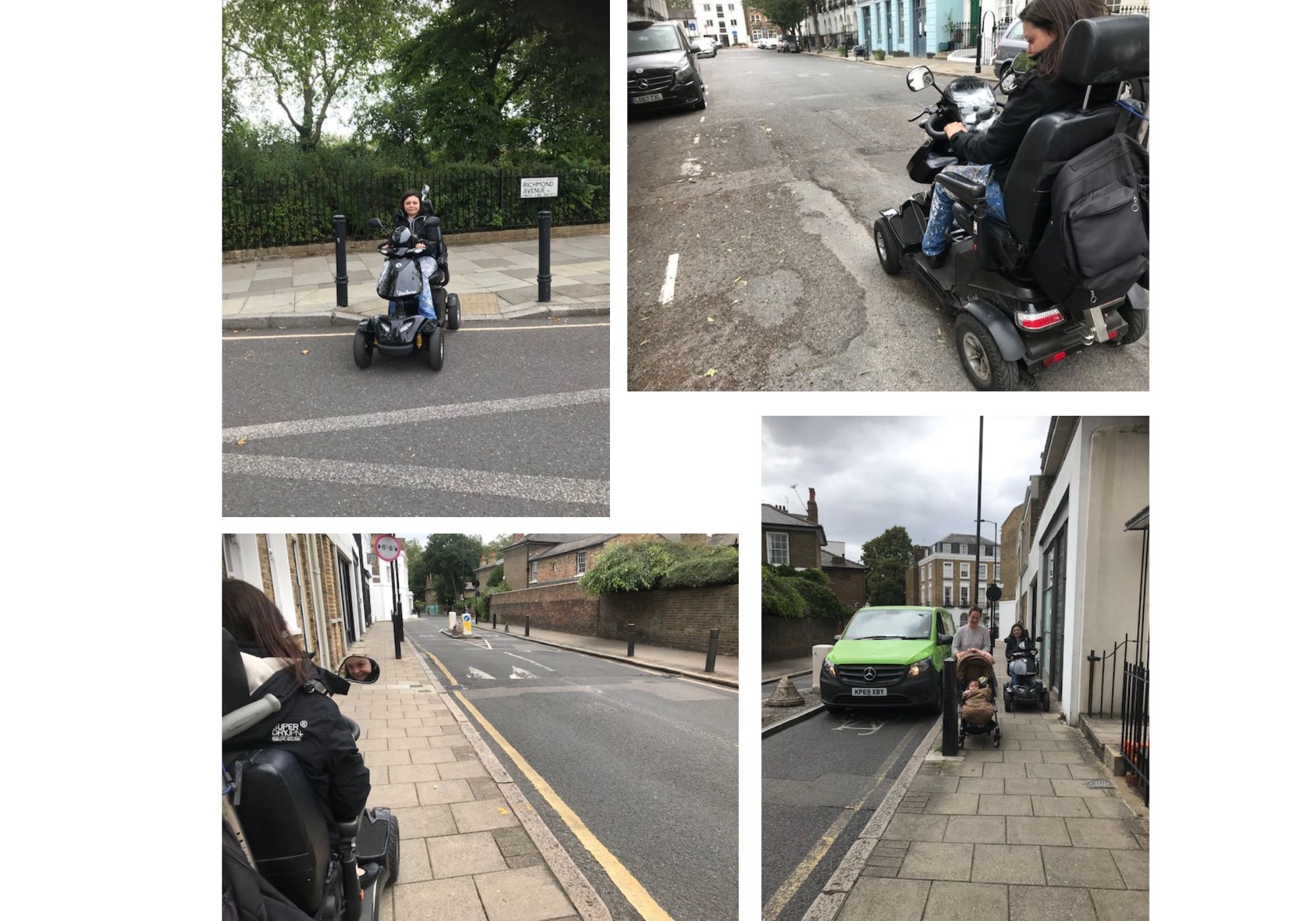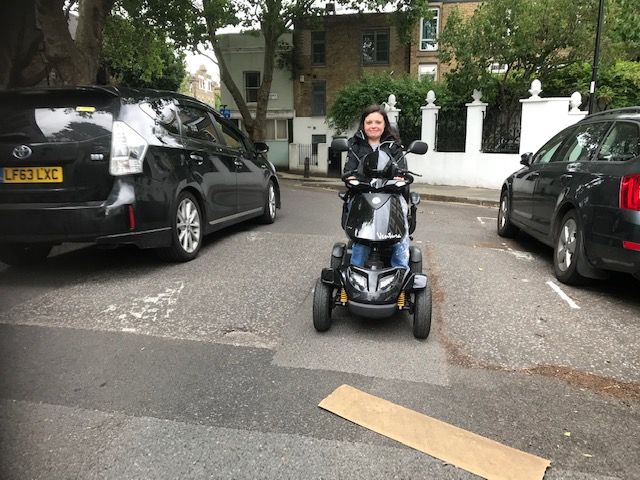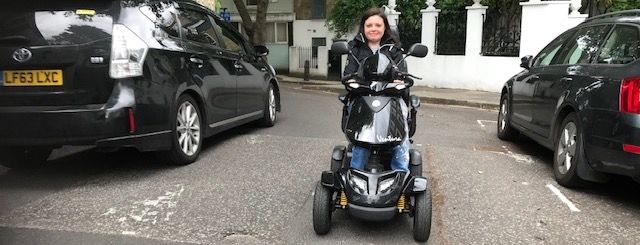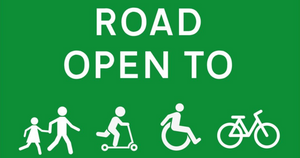When I met Carly at the corner of Liverpool Road and Islington Park Street, she had just experienced an abusive situation with a car driver. In fact, it was so recent she pointed out the driver who was still at the traffic lights. Carly's story is shocking.
‘I’ve just been dealing with another road rage situation” she told me, “beeping, shouting, I get all kinds of abuse from drivers.”
Carly is an Islington resident, an established artist and mother to a 6-year old who attends school in Barnsbury. Like the majority of disabled people, Carly doesn’t drive a car but she has a mobility scooter that enables her travel. She picks up her son from school every day, skilfully navigating the streets of St Mary's and Barnsbury wards.
“The roads are not designed for mobility scooters. Part of the problem is the speed cushions, they force me into the middle of the road, causing drivers to slow down which often ends up causing anger from drivers.”
Carly needs to drive on the flat part of the road, between the raised bumps as the mobility scooter is not very stable. If one side of the scooter goes over the ramp it could tilt her scooter onto its side, tipping it into the middle of the road.

“At least once a day, drivers beep or shout at me, but it can be as many as five times a day. It’s quite upsetting. Sometimes I wear a pollution mask or headphones to help me block out the abuse - it helps me cope.”
The worst roads are the busiest ones: Holloway Road, Liverpool Road, Upper Street, but none are good. Cycle lanes make it relatively better for Carly. Mobility scooters have a legal right to use the road, but drivers make Carly feel unwelcome. They make her feel as though she is an inconvenience on the road.
“It’s not safe, the roads are really quite dangerous. Cars overtake me on blind corners as they can’t wait – my top speed is only 14 kilometres per hour. They often behave as though I shouldn’t be on the road.”
The law also allows Carly to use her mobility scooter on the pavement. “But I can’t go faster than 4 kph on the pavement and there are often obstacles in my way.”
As we walk towards her son’s school, the pathway is blocked. A workman has put up a temporary fence. Pedestrians can easily pass but there’s not enough room for the mobility scooter. Carly calls out to him and he quickly moves it allow her to pass, but these things pop up all the time. It may be a tree stump causing a pavement to rise up or a lack of dropped kerbs but essentially, she feels there is no place for her.
“It’s like choosing between a rock and a hard place - whether to go on the pavement or road.”

On Thornhill Road, she says she won’t go on the road, it’s a narrow, bendy part of the road. “Drivers can be funny around here, they drive fast and there’s not much space for overtaking so I need to be going fast”.
Driving around during lockdown gave Carly respite from abusive drivers. “The roads were much safer, there was much less traffic which made it much easier to drive on the roads.”

I asked Carly what she thought of Islington Council’s plans to create People Friendly Streets (Islington’s brand for low traffic neighbourhoods) in Barnsbury and St Marys, would it help or be a hindrance to her mobility access?
“It will make it much easier for me to travel around, the roads are much safer when they are closed off to through traffic. I can easily navigate the filters and my journey becomes much less stressful. The more space there is, the less abuse I receive."
As we arrive at the school gates she turns to me and says, “I’ve never talked to anyone about this before, except my close family. No-one has ever asked me what it’s like to drive a mobility scooter around, it’s good to be heard.”
People Friendly Streets will be life-changing for Carly. They will improve her access and her ability to travel around the borough safely. Her advice to anyone with a disabled relative – low traffic neighbourhoods will significantly improve their lives, safety and mobility.
Check out Carly's amazing work on Instagram: CARLY ASHDOWN
Update 17 July 2020: this post features in the Islington Tribune








